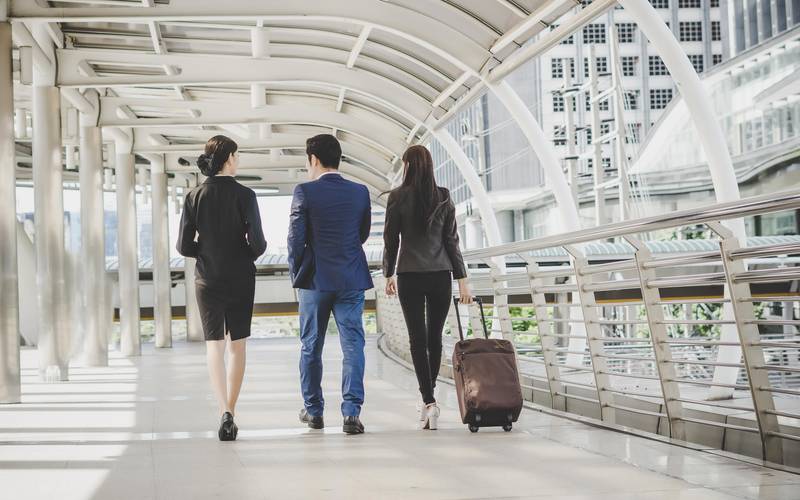Monday, January 25, 2021, marked one year since the first case of COVID-19 was detected in Australia.
12 months on and the country has recorded more than 28,000 cases, 26,000 of which have recovered. To date, Australia has experienced lower infection and death rates than most other countries and has been ranked in the top 10 countries with the most successful response to the pandemic, resulting in part to the speedy and strict border closures.
Current sentiments
Although the majority of Australian states have reported zero new locally acquired coronavirus cases, last week started with the frustrating news that Australia’s international borders will most likely remain closed for some time.
The Secretary of the Department of Health, Brendan Murphy, forecasted that the current travel situation is unlikely to change soon, even with the vaccines rolling out in the next few months. Because of continuing uncertainty over the effectiveness of the vaccines to prevent the transmission of COVID-19, Australian borders may stay closed until 2022 and mandatory quarantine will continue for some time as the Government remains cautious in allowing any travel exemptions to enter the country.
This gave us little to be hopeful of in relation to international travel until the Prime Minister chimed in. The Prime Minister, Scott Morrison, indicated, in response to Brendan Murphy, that international travel could be back this year, depending on the weekly reviews that the Government is undertaking.
While opinions are divided as to when international travel may resume, and with Australia are taking a cautious approach, we can be assured that the Government are continually reassessing the situation and will reopen international borders as soon as they feel it’s safe to do so, even if this is in stages with travel bubbles.
March will mark one year since Australia’s international borders were closed to all non-residents, travel restrictions imposed on citizens and permanent residents who were only allowed to leave the country in very limited circumstances, and quarantine periods established to those returning home with exemptions. In one year Australia became one of the most difficult countries to enter or leave with the strict lockdowns and border controls, but it seems that the measures have been working, with very few active cases in the community.
Although there is no exact date for the reopening of borders and it is impossible to predict, international travel has been a priority on the Government’s agenda and subject to much discussion and debate, especially when some industries, such as aviation, tourism, and education are struggling due to the travel bans.
Some hope for future travel
At the end of 2020, Australia implemented a one-way ‘travel bubble’ with New Zealand, in which passengers from New Zealand could travel to Australia quarantine-free, without needing a travel exemption. Meanwhile, New Zealand is still planning to establish a two-way safe travel zone with Australia in the first quarter of this year.
Vaccination plans in Australia
Australia is also expected to start the COVID-19 vaccination program next month, after the acquisition of 10 million doses of Pfizer-BioNTech vaccine and another 54 million doses of Astra Zeneca vaccine have been secured with 3.8 million doses to be delivered early this year and 50 million to be manufactured onshore.
The vaccine will be available for free to Australian citizens, permanent residents, and most visa-holders, especially for those who have been identified as a priority group, such as healthcare, aged care, disability support and quarantine workers, and those with increased risk of developing severe diseases, such as the elderly, people with certain medical conditions, and Aboriginal and Torres Strait Islander People.
Under Australia’s COVID-19 policy, the free vaccination plan currently excludes the holders of subclass 600 (Tourist), subclass 771 (Transit), 651 (eVisitor), and 601 (Electronic Travel Authority) visas. These visa holders may have to pay to get vaccinated and the cost is expected to be around USD 39 for two doses.
According to Jeremy McAnulty, Head of NSW Health’s COVID response branch, no vaccine is 100% effective and it’s almost impossible to eliminate the risk of infected people coming into Australia with the pandemic raging around the world. While a widely rolled out vaccination program will help control the spread, it is important that people continue to get tested and isolate if they have symptoms.
No one expected border restrictions or strict lockdown measures to be in place as long as they have been, and with continued control over the spread of the virus within Australia, we hope to see the reduction of harsh border controls in the coming months. Not only do we need increased travel to continue to rebuild our economy through skilled workers, international students, and eventually tourism, many families and partners who have been separated also need hope that they will soon have accessible and easy pathways to be reunited with their loved ones.






